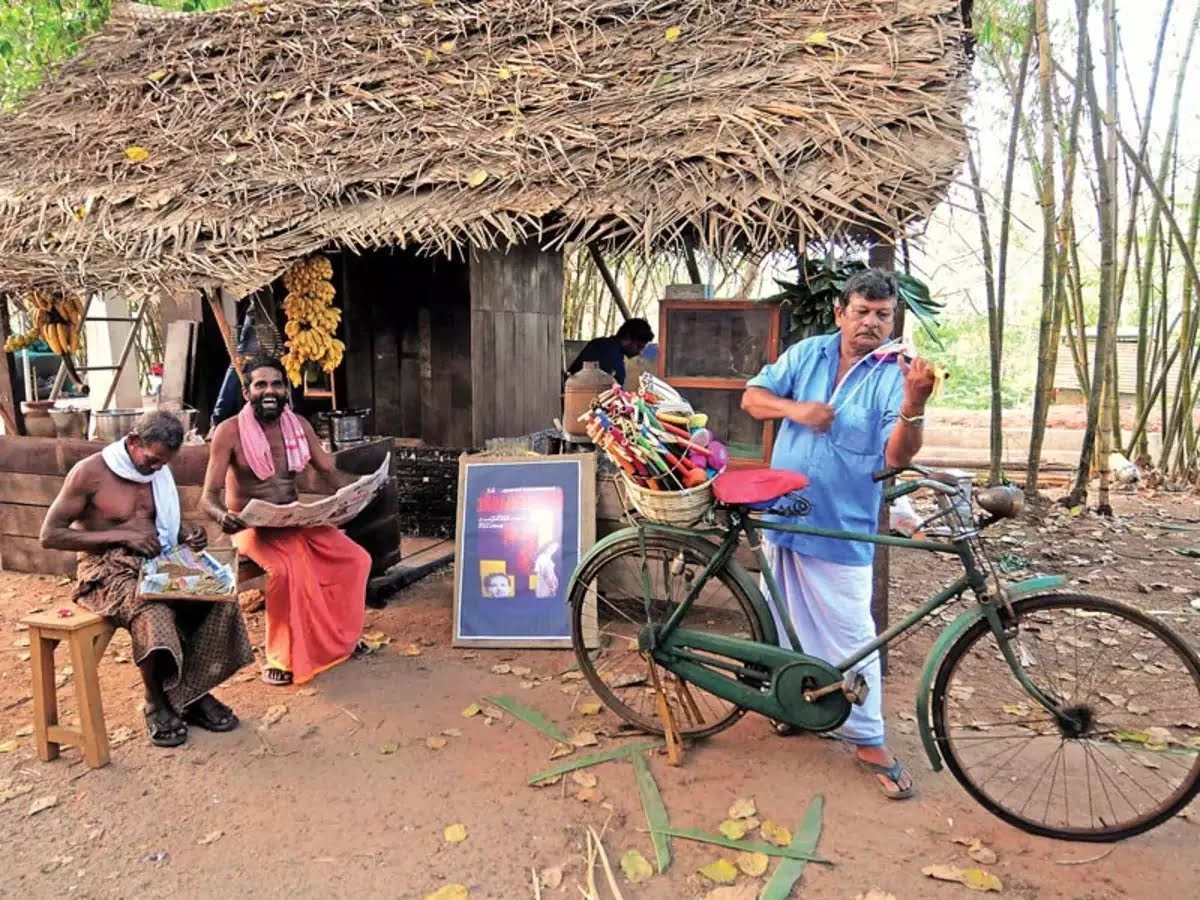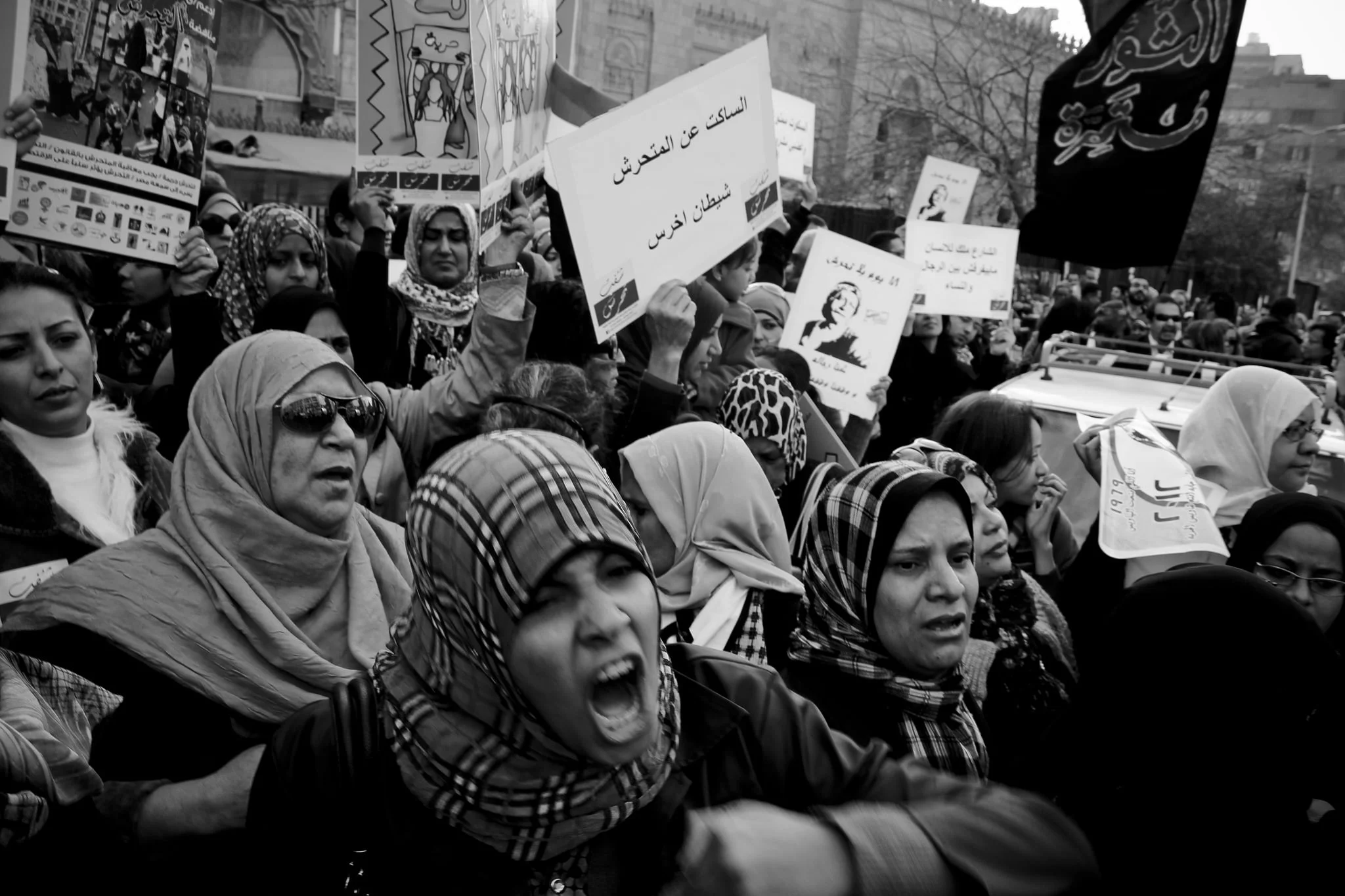When France had salons, Kerala’s public spaces the 19th century had ‘chayakadas’, kallushapu’ and ‘kavalas’ as spaces of political activism. However these spaces till date continue to be predominantly male-dominated. The article aims to trace Kerala politics and women participation through these spaces.
“Chayakada” or the tea stalls of Kerala have historically and popularly been centers of piping hot frothy tea, kadi, and myriad discussions around politics and society. Tanya Abraham, the author of Eating With History: Ancient Trade-Influenced Cuisines of Kerala, talks about how chayakadas first opened in villages. “Poor people who could not afford newspapers began coming to the chayakada. It became a place where people met, had their tea in the morning and the newspaper got read aloud. A congregation happened where people talked and discussed politics.” It was a place of political activism, discussions and a place where local news can be gathered. It was and still is a space beyond caste or class differences. A place that welcomed all, but women.
Chayakadas are a place of political activism, discussions and a place where local news can be gathered. It was and still is a space beyond caste or class differences. A place that welcomed all, but women.
Not that you will ever find a board that read “women not allowed” in front of any of the tea stalls but still, you will never find a woman amidst the discussions there. It was a space predominantly occupied by men. It is therefore not a surprise to note that with a ratio of 1084 female to every 1000 men, as per the 2011 census and a literacy rate of 97.2%, in which female literacy rate constituted 95.2%, the number of women candidates for the Kerala Assembly Elections has been always less than 40 in total of 140 seats. In six decades, the percentage of women MLAs also have never exceeded 10%.
Three major public spaces of discussions wherein Kerala’s politically literate thrive, are tea stalls (chayakadas), toddy shops (kallushappu), local junctions (kavalas) and not surprisingly, these three spaces are largely occupied by men.
Three major public spaces of discussions wherein Kerala’s politically literate thrive, are tea stalls (chayakadas), toddy shops (kallushappu), local junctions (kavalas) and not surprisingly, these three spaces are largely occupied by men. Not only are these spaces occupied by men but also, movies go on to sexualise the female characters that work there or are part of such establishments. The idea therefore is to frame female participations in these spaces ‘deviant’. “She must be healthy, freely mobile, sexually inert and, most importantly, have a good reason for being out of doors. She must never loiter,” is the argument Shilpa Phadke makes in ‘Why Loiter’ on the need to have a purpose for women to step out very relevant here too. Therefore, the tea stalls in Kerala, which have been an active space of activism and played a major role in challenging the casteism in Kerala from 19th century, however failed to challenge patriarchy and created two different ideas of “politics”.
Also read: Why The LDF Govt’s Exclusion Of ‘Rockstar’ Shailaja Teacher Should Be Criticised
An extension of the public space is also the newsroom. Going through one of the Malayalam channels on the post-exit poll discussions, while discussing the feedbacks on the basis of gender on the current politics, Johny Lukose (Manorama News Director) stated that many women in Kerala would vote for the existing government for they care only about what is provided in the kitchen for them. They do not think beyond that or take anything into consideration while casting their vote, he said. Shani Prabhakaran, the popular Manorama News studio reporter right away questioned him on how was that not an important part of politics. It is to be also noted that the only female figure who was part of the discussion was Shani. The exchange can be viewed from 3:14:00-3:17:00 in the video below.
This is again not an uncommon sight for anyone who watches news daily. In any political debate or discussion in Malayalam news channels, it is rare to find female representatives part of it except for gender related issues.
In the election season in Kerala this time, this skewed representation of women in public spaces, this time in politics, was also brought to the forefront, especially with Shailaja teacher getting ousted from the Kerala ministry in its second run. One of the reasons stated numerous times on why there are few women candidates, is that there are few women in politics. When women are excluded from politics beyond the ones within the kitchen, how can one expect their participation in it. And when women battle these odds and show their capabilities, they are sidelined. K.K.Shailaja’s (Shailaja teacher) is a very recent example. When the party made a reformative decision to have a cabinet with fresh members with three women representatives, why did the party fail to take a revolutionary decision to place a woman as CM is a question that could be raised by the dissenters too. To quote Shailaja teacher’s words, which she popularly raised to oppose a sexist remark, “What is wrong if a woman leads?”

If there was no 50 percent reservation for women in local body elections, there would have been fewer women members even there. It is very rare to find a woman stand in ‘general’ seat in Kerala local body elections and if a woman wins the election, often, she becomes the proxy leader, with her spouse or other male members in the family making the decisions on her behalf. Women are not only excluded from the public spaces of political discussions but also within the household. One can clearly notice, men discussing politics beyond ‘kitchen politics’ sipping tea or liquor in one room, mostly the sit-out or the drawing room. On the other side, women while cutting vegetables or preparing food in kitchen discussing the ‘kitchen politics’.
It is high time we challenge the notion that Kerala has a broader outlook towards gender equality in terms of politics. Even though Kerala played an active role in empowering women to have financial independence, through Kudumbasree for example, and is a better space for women to live and be treated equally compared to many parts of India, but when it comes to politics, there still requires a lot of work to be done.

Also read: How Is Kerala’s Kudumbashree Model Helping Combat The Pandemic?
If the condition of women who constitute 1,41,62,025 of voters in Kerala is this, the condition of trans people who constitute 290 voters in Kerala is even worse, could be understood without explanations. When spaces of political discussions for years have been exclusively male-occupied, it is not surprising to see fewer participation of other gender minority populations in it. From the ‘chayakada’ to ‘sit-outs’ to ‘news channels’ in a state that seems to have moved forward in empowering women, continues to largely exclude women from its public arena and how.
Featured image source: Times Of India
About the author(s)
Anne Mary Shaju is a first year M.A.History student at University of Delhi. She is a student of history whose fields of interest includes gender, subaltern, oral, social, political and economic histories. You can find her on Instagram.





This article reminds us of the naked truth that even in Kerala, which is culturally and educationally at the forefront of India, women are denied equal social rights. When the article ends with a question as to how the conditions that have established social equality in Kerala politics have become alien to women, we are compelled to give an answer at least before the new generation. May such thought provoking articles be a platform for a radical solution to the problems facing women in India today. I wish Annemarie to have the energy to write for change and achieve it. very well written and keep going.